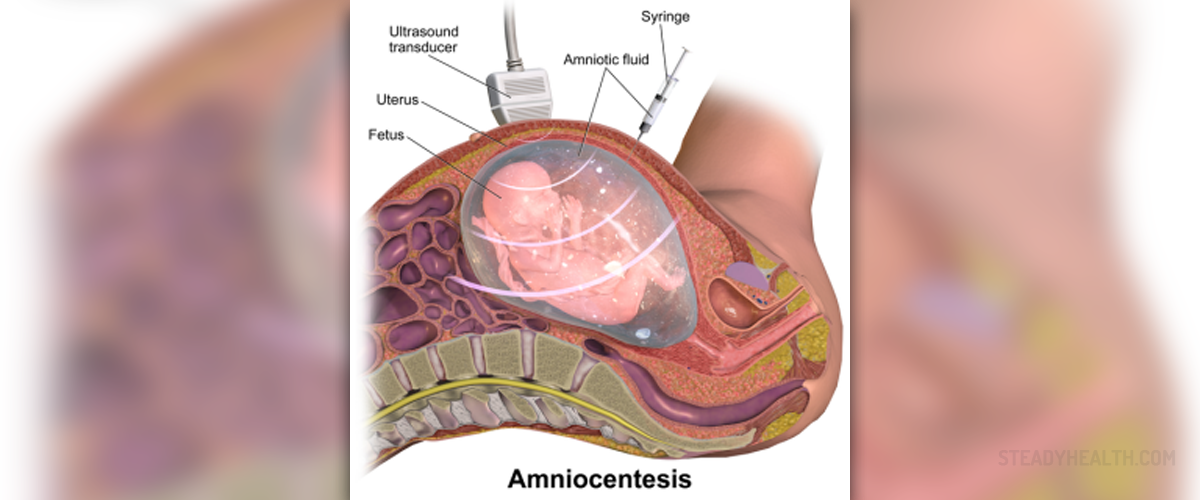
Most doctors recommend that an amniocentesis is carried out between 14 to 18 weeks gestation. It can be performed at pretty much any time during pregnancy, but some families' motivations to carry out the test is to discontinue the pregnancy if anomalies are discovered. Because of this, the general consensus is to perform an amniocentesis as early on as possible. You can read more about it in our article, amniocentesis what it is, and how it works. Now for the risks. Most statistics you will take a look at will say that out of 200 performed amniocentesis procedures, one ends in a miscarriage. If the amniocentesis is performed later on in pregnancy, it can also cause pre-term labor. Whether the risk is worth it is a very personal decision. Some families choose to do an amniocentesis as a result of an abnormal screening test, like prenatal testing for Down Syndrome, and want to know about the health of their baby for sure. Others are offered the test because they are perceived to be a larger risk due to a family history of chromosomal abnormalities, or advanced maternal age.
Before having an amniocentesis, ask yourself the following questions. If your baby was found to suffer from a certain condition, how would that change your attitude towards that pregnancy? Would you welcome any baby into your family, and would you choose to carry a baby to term even if they suffered from a condition that would not enable them to live outside of the uterus? If so, what would your reasons be for having an amniocentesis? And finally, how do you think you would feel if you had a miscarriage because of an amniocentesis?
- www.nhs.uk/conditions/amniocentesis/risks/
- www.nhs.uk/conditions/amniocentesis/
- Photo courtesy of BruceBlaus by Wikimedia Commons: commons.wikimedia.org/wiki/File:Amniocentesis.png

















Your thoughts on this
Loading...